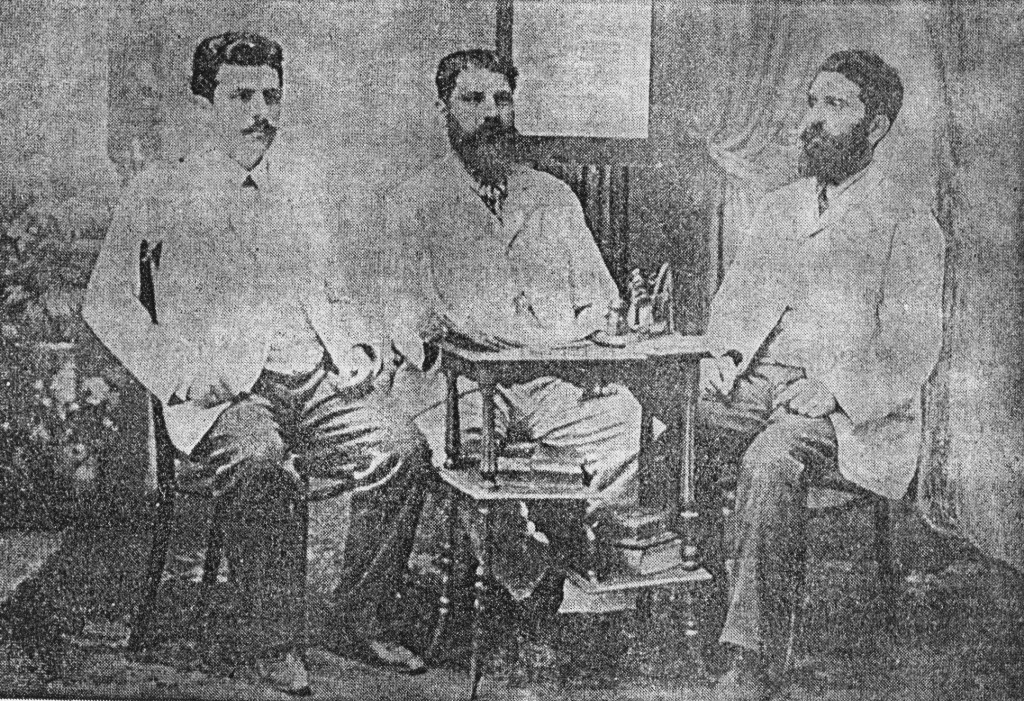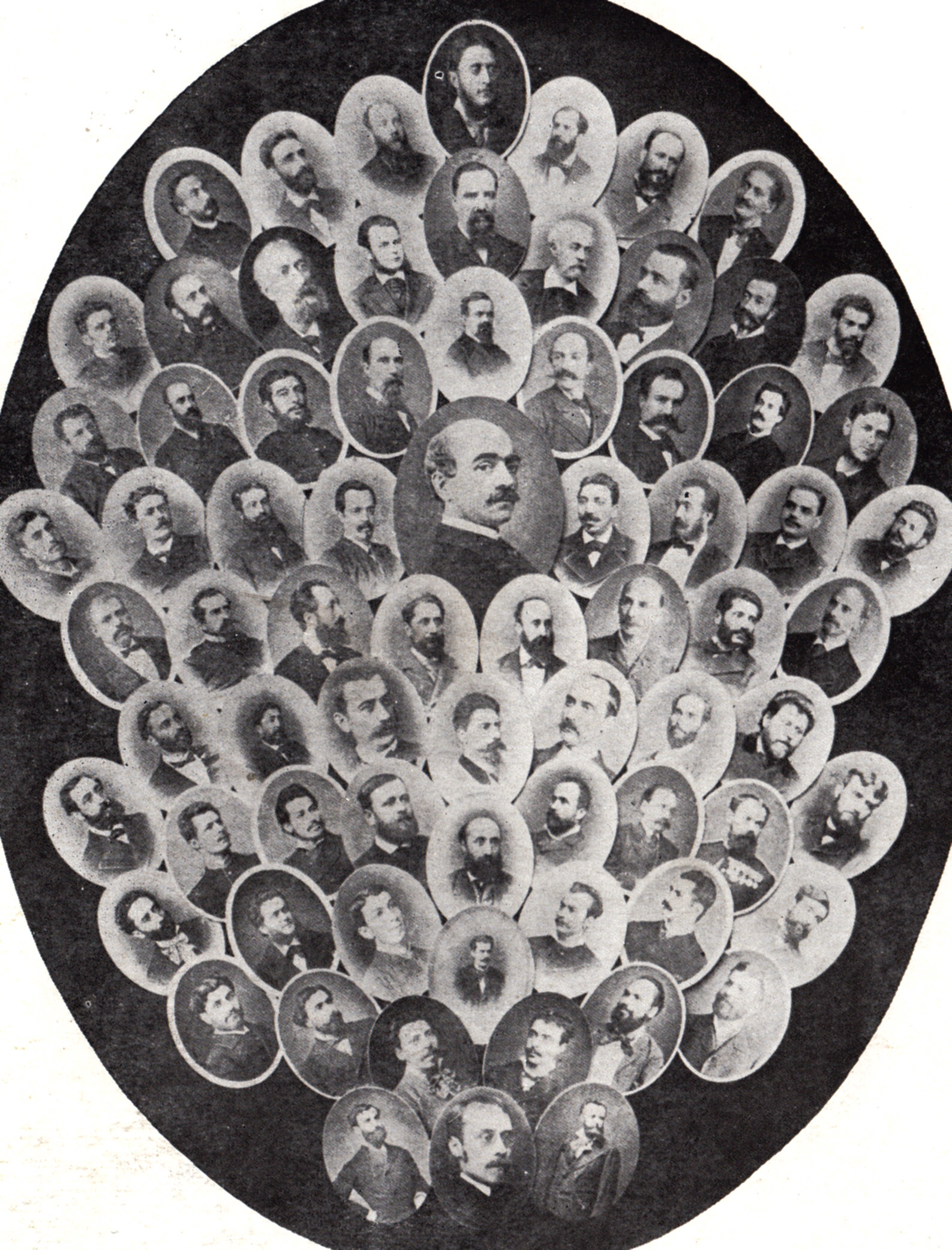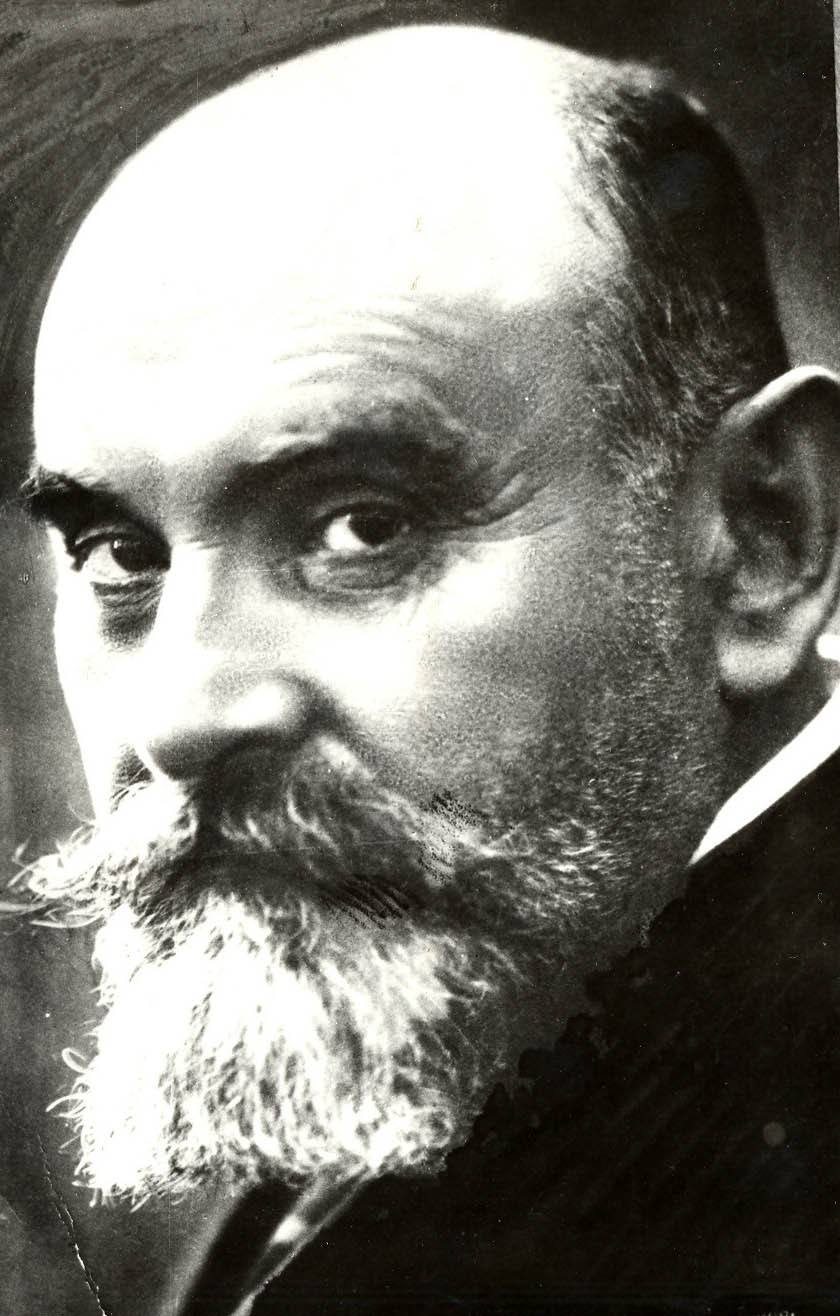|
Poporanism
Poporanism is a Romanian version of nationalism and populism. The word is derived from ''popor'', meaning "people" in Romanian. Founded by Constantin Stere in the early 1890s, Poporanism is distinguished by its opposition to socialism, promotion of voting rights for all and its intent to reform the Parliament and the farming system. Regarding Romania's agrarian situation, Poporanists wished to form co-operative farms for the peasants and to remove them from aristocratic control. Unlike Junimism, another popular political philosophy, Poporanism focused mainly on expanding the power of the peasants. In a very nationalist manner, it was also a champion of the Romanian language and of maintaining the Romanian spirit. Several famous Romanians, including Ion Agârbiceanu, supported it. Narodism and Constantin Dobrogeanu-Gherea Constantin Dobrogeanu-Gherea, a Romanian political activist, first introduced the Russian ideas of Narodism to Romania and supported the ideas of Poporanism. T ... [...More Info...] [...Related Items...] OR: [Wikipedia] [Google] [Baidu] |
Constantin Stere
Constantin G. Stere or Constantin Sterea (Romanian; russian: Константин Егорович Стере, ''Konstantin Yegorovich Stere'' or Константин Георгиевич Стере, ''Konstantin Georgiyevich Stere''; also known under his pen name ''Șărcăleanu''; June 1, 1865 – June 26, 1936) was a Romanian writer, jurist, politician, ideologue of the '' Poporanist'' trend, and, in March 1906, co-founder (together with Garabet Ibrăileanu and Paul Bujor — the latter was afterwards replaced by the physician Ioan Cantacuzino) of the literary magazine ''Viața Românească''. One of the central figures of the Bessarabian intelligentsia at the time, Stere was a key actor during the Union of Bessarabia with Romania in 1918, and is associated with its legacy. Constantin Stere was professor of Administrative and Constitutional law at the University of Iaşi, serving as its rector between 1913 and 1916. He is also remembered for his partly autobiographical ... [...More Info...] [...Related Items...] OR: [Wikipedia] [Google] [Baidu] |
Poporanism
Poporanism is a Romanian version of nationalism and populism. The word is derived from ''popor'', meaning "people" in Romanian. Founded by Constantin Stere in the early 1890s, Poporanism is distinguished by its opposition to socialism, promotion of voting rights for all and its intent to reform the Parliament and the farming system. Regarding Romania's agrarian situation, Poporanists wished to form co-operative farms for the peasants and to remove them from aristocratic control. Unlike Junimism, another popular political philosophy, Poporanism focused mainly on expanding the power of the peasants. In a very nationalist manner, it was also a champion of the Romanian language and of maintaining the Romanian spirit. Several famous Romanians, including Ion Agârbiceanu, supported it. Narodism and Constantin Dobrogeanu-Gherea Constantin Dobrogeanu-Gherea, a Romanian political activist, first introduced the Russian ideas of Narodism to Romania and supported the ideas of Poporanism. T ... [...More Info...] [...Related Items...] OR: [Wikipedia] [Google] [Baidu] |
Ion Agârbiceanu
Ion Agârbiceanu (first name also Ioan, last name also Agărbiceanu and Agîrbiceanu; September 12, 1882 – May 28, 1963) was an Austro-Hungarian-born Romanian writer, journalist, politician, theologian and Greek-Catholic priest. Born among the Romanian peasant class of Transylvania, he was originally an Orthodox, but chose to embrace Eastern Catholicism. Assisted by the Catholic congregation of Blaj, he graduated from Budapest University, after which he was ordained. Agârbiceanu was initially assigned to a parish in the Apuseni Mountains, which form the backdrop to much of his fiction. Before 1910, Agârbiceanu had achieved literary fame in both Transylvania and the Kingdom of Romania, affiliating with Astra cultural society in 1912; his work was disputed between the rival schools of ''Sămănătorul'' and Poporanism. After a debut in poetry, he became a highly prolific author of novels, novellas, and other forms of prose, being rated as " Chekhovian" or "Tolstoyan" for his ta ... [...More Info...] [...Related Items...] OR: [Wikipedia] [Google] [Baidu] |
Junimea
''Junimea'' was a Romanian literary society founded in Iași in 1863, through the initiative of several foreign-educated personalities led by Titu Maiorescu, Petre P. Carp, Vasile Pogor, Theodor Rosetti and Iacob Negruzzi. The foremost personality and mentor of the society was Maiorescu, who, through the means of scientific papers and essays, helped establish the basis of the modern Romanian culture. Junimea was the most influential intellectual and political association from Romania in the 19th century. Beginnings In 1863, four years after the union of Moldavia and Wallachia (''see: United Principalities''), and after the moving of the capital to Bucharest, five enthusiastic young people who had just returned from their studies abroad created in Iaşi a society which wanted to stimulate the cultural life in the city. They chose the name "''Junimea''", a slightly antiquated Romanian word for "Youth". It is notable that four of the founders were part of the Romanian elite, the ... [...More Info...] [...Related Items...] OR: [Wikipedia] [Google] [Baidu] |
Populism
Populism refers to a range of political stances that emphasize the idea of "the people" and often juxtapose this group against " the elite". It is frequently associated with anti-establishment and anti-political sentiment. The term developed in the late 19th century and has been applied to various politicians, parties and movements since that time, often as a pejorative. Within political science and other social sciences, several different definitions of populism have been employed, with some scholars proposing that the term be rejected altogether. A common framework for interpreting populism is known as the ideational approach: this defines ''populism'' as an ideology which presents "the people" as a morally good force and contrasts them against "the elite", who are portrayed as corrupt and self-serving. Populists differ in how "the people" are defined, but it can be based along class, ethnic, or national lines. Populists typically present "the elite" as comprising the po ... [...More Info...] [...Related Items...] OR: [Wikipedia] [Google] [Baidu] |
Constantin Dobrogeanu-Gherea
Constantin Dobrogeanu-Gherea (born Solomon Katz; 1855, village of Slavyanka near Yekaterinoslav (modern Dnipro), then in Imperial Russia – 1920, Bucharest) was a Romanian Marxist theorist, politician, sociologist, literary critic, and journalist. He was also an entrepreneur in the city of Ploiești. Constantin Dobrogeanu-Gherea was the father of communist activist Alexandru Dobrogeanu-Gherea and of philosopher Ionel Gherea. Biography Constantin Dobrogeanu-Gherea was born in Yekaterinoslav Governorate of the Russian Empire to Ukrainian Jewish Katz family. After studies at Kharkiv University (where he engaged in revolutionary politics), Dobrogeanu-Gherea fled persecution by the Okhrana and settled in Iași (1875). He was active in socialist politics, giving shape to the first centers of activism in Romania, and contributed to left-wing magazines such as ''Contemporanul''. The group centered on Dobrogeanu-Gherea became the most preeminent one to form the Romanian Social-D ... [...More Info...] [...Related Items...] OR: [Wikipedia] [Google] [Baidu] |
Narodniks
The Narodniks (russian: народники, ) were a politically conscious movement of the Russian intelligentsia in the 1860s and 1870s, some of whom became involved in revolutionary agitation against tsarism. Their ideology, known as Narodism, Narodnism or (russian: народничество; , similar to the German ), was a form of agrarian socialism though is often misunderstood as populism. The (; meaning 'going to the people') campaigns were the central impetus of the Narodnik movement. The Narodniks were in many ways the intellectual and political forebears and, in notable cases, direct participants of the Russian Revolution—in particular of the Socialist-Revolutionary Party, which went on to greatly influence Russian history in the early 20th century. History Narodnichestvo as a philosophy was influenced by the works of Alexander Herzen (1812–1870) and Nikolay Gavrilovich Chernyshevsky (1828–1889), whose convictions were refined by Pyotr Lavrov (1823–1900) and ... [...More Info...] [...Related Items...] OR: [Wikipedia] [Google] [Baidu] |
Liberalism
Liberalism is a political and moral philosophy based on the rights of the individual, liberty, consent of the governed, political equality and equality before the law."political rationalism, hostility to autocracy, cultural distaste for conservatism and for tradition in general, tolerance, and ... individualism". John Dunn. ''Western Political Theory in the Face of the Future'' (1993). Cambridge University Press. . Liberals espouse various views depending on their understanding of these principles. However, they generally support private property, market economies, individual rights (including civil rights and human rights), liberal democracy, secularism, rule of law, economic and political freedom, freedom of speech, freedom of the press, freedom of assembly, and freedom of religion. Liberalism is frequently cited as the dominant ideology of modern times.Wolfe, p. 23.Adams, p. 11. Liberalism became a distinct movement in the Age of Enlightenment, gaining popularity ... [...More Info...] [...Related Items...] OR: [Wikipedia] [Google] [Baidu] |
Left-wing Populism
Left-wing populism, also called social populism, is a political ideology that combines left-wing politics with populist rhetoric and themes. Its rhetoric often consists of anti-elitism, opposition to the Establishment, and speaking for the "common people".Albertazzi and McDonnell, p. 123. Recurring themes for left-wing populists include economic democracy, social justice, and Anti-globalization movement, scepticism of globalization. Socialist theory plays a lesser role than in traditional left-wing ideologies. Criticism of capitalism and globalization is linked to antimilitarism, which has increased in left populist movements due to unpopular United States military operations, especially those in the Middle East. It is considered that the populist left does not exclude others horizontally and relies on Egalitarianism, egalitarian ideals. Some scholars also speak of nationalist left-wing populist movements, a feature exhibited by the Sandinista Revolution in Nicaragua or the Boliv ... [...More Info...] [...Related Items...] OR: [Wikipedia] [Google] [Baidu] |
Kingdom Of Romania
The Kingdom of Romania ( ro, Regatul României) was a constitutional monarchy that existed in Romania from 13 March ( O.S.) / 25 March 1881 with the crowning of prince Karl of Hohenzollern-Sigmaringen as King Carol I (thus beginning the Romanian royal family), until 1947 with the abdication of King Michael I of Romania and the Romanian parliament's proclamation of the Romanian People's Republic. From 1859 to 1877, Romania evolved from a personal union of two vassal principalities (Moldavia and Wallachia) under a single prince to an autonomous principality with a Hohenzollern monarchy. The country gained its independence from the Ottoman Empire during the 1877–1878 Russo-Turkish War (known locally as the Romanian War of Independence), when it also received Northern Dobruja in exchange for the southern part of Bessarabia. The kingdom's territory during the reign of King Carol I, between 13 ( O.S.) / 25 March 1881 and 27 September ( O.S.) / 10 October 1914 is sometimes referred ... [...More Info...] [...Related Items...] OR: [Wikipedia] [Google] [Baidu] |
Agrarian Politics
Agrarian means pertaining to agriculture, farmland, or rural areas. Agrarian may refer to: Political philosophy *Agrarianism *Agrarian law, Roman laws regulating the division of the public lands *Agrarian reform *Agrarian socialism Society *Agrarian society *Agrarian system *Agrarian structure * Agrarian technology See also *Agrarian League (other) *Agrarian Party (other) *Agrarian Justice, 1797 pamphlet by Thomas Paine *Southern Agrarians *Agricultural economics Agricultural economics is an applied field of economics concerned with the application of economic theory in optimizing the production and distribution of food and fiber products. Agricultural economics began as a branch of economics that specif ... * Agrarian change {{disambig ... [...More Info...] [...Related Items...] OR: [Wikipedia] [Google] [Baidu] |
National Liberal Party (Romania, 1875)
The National Liberal Party ( ro, Partidul Național Liberal, PNL) was the first organised political party in Romania, a major force in the country's politics from its foundation in 1875 to World War II. Established in order to represent the interests of the nascent local bourgeoisie, until World War I it contested power with the Conservative Party, supported primarily by wealthy landowners, effectively creating a two-party system in a political system which severely limited the representation of the peasant majority through census suffrage. Unlike its major opponent, the PNL managed to preserve its prominence after the implementation of universal male suffrage, playing an important role in shaping the institutional framework of ''Greater Romania'' during the 1920s. History Dominated throughout its existence by the Brătianu family, the party was periodically affected by strong factionalism. Among the many splits during the party's early history a notable one was that led ... [...More Info...] [...Related Items...] OR: [Wikipedia] [Google] [Baidu] |








